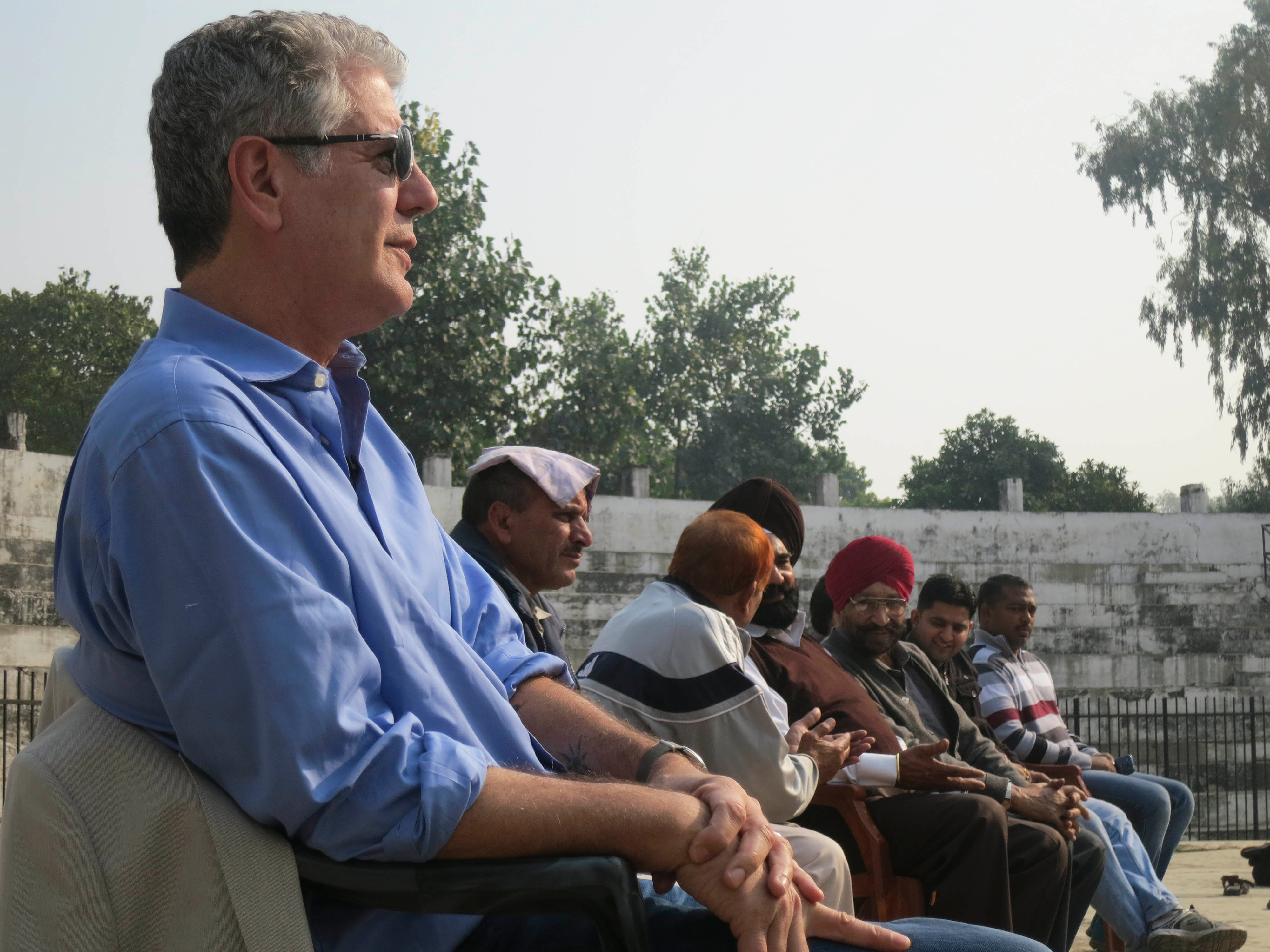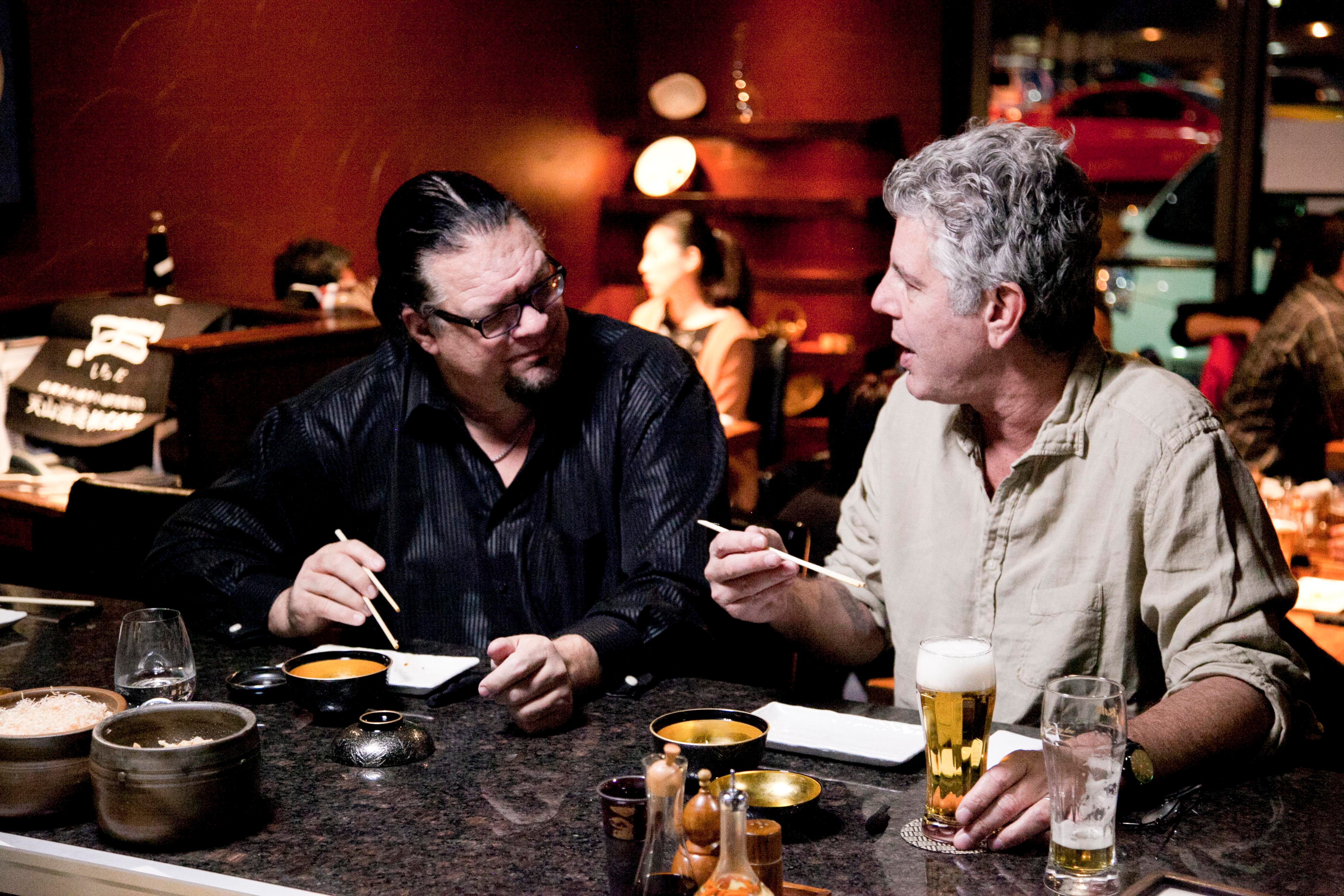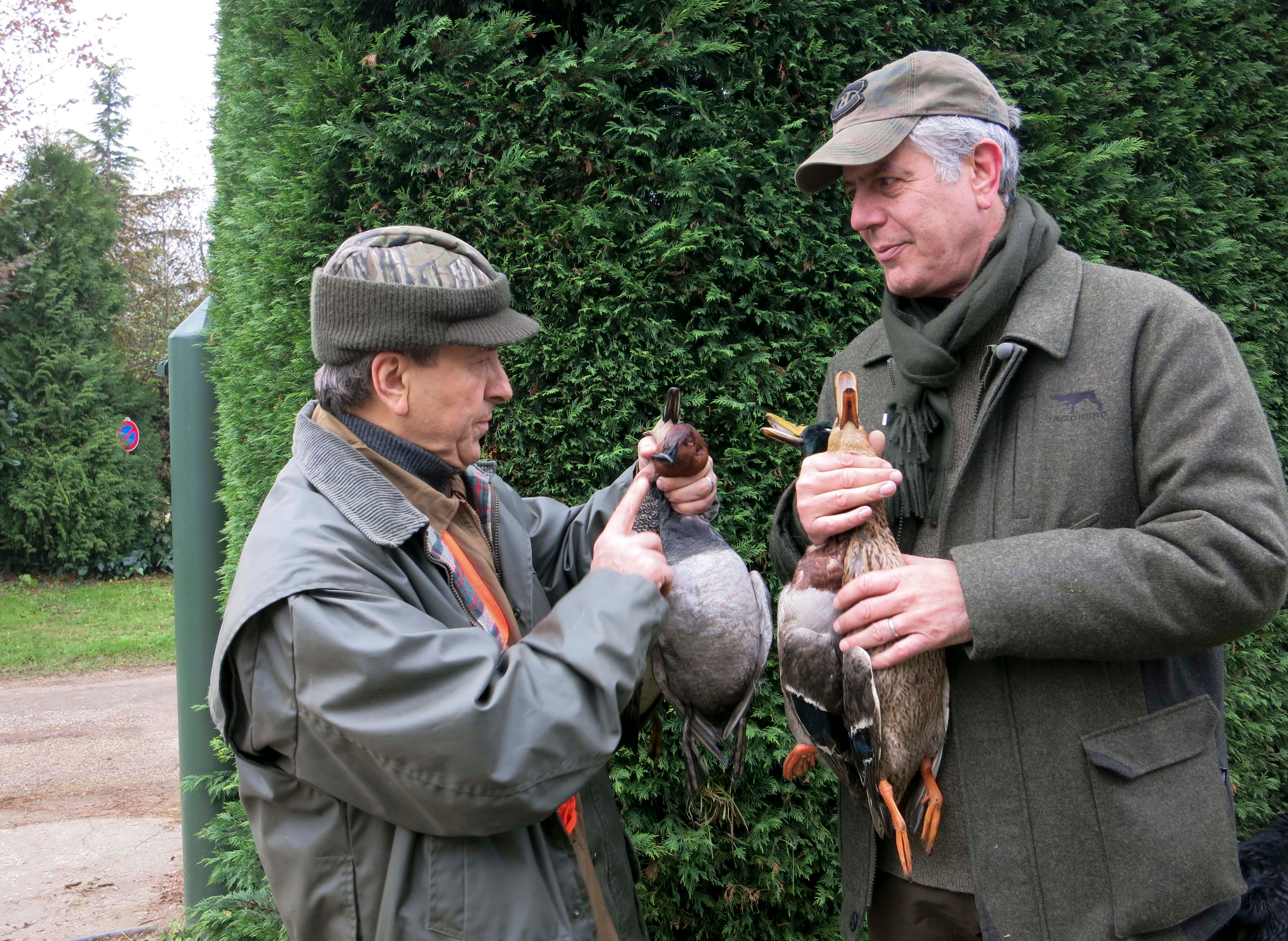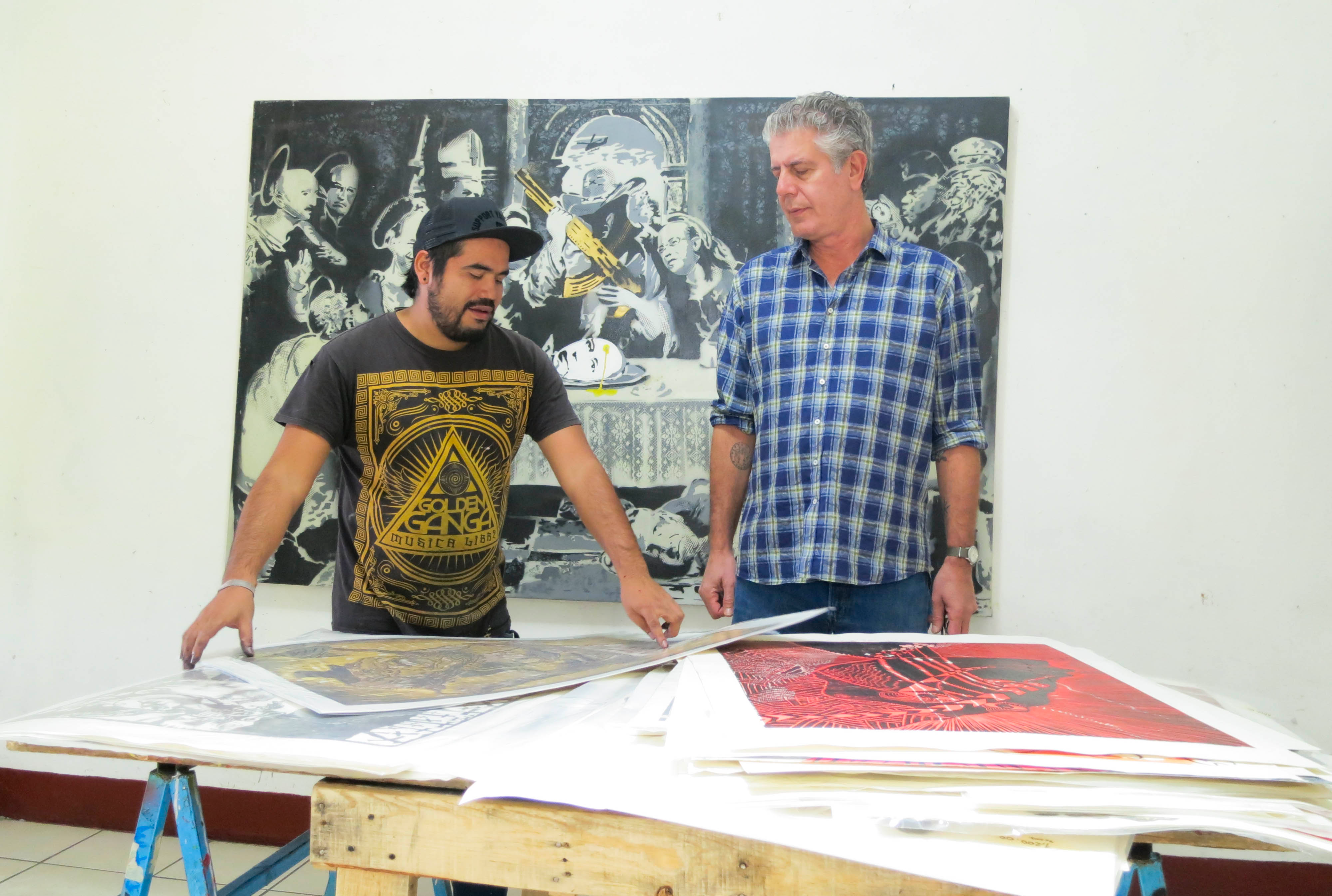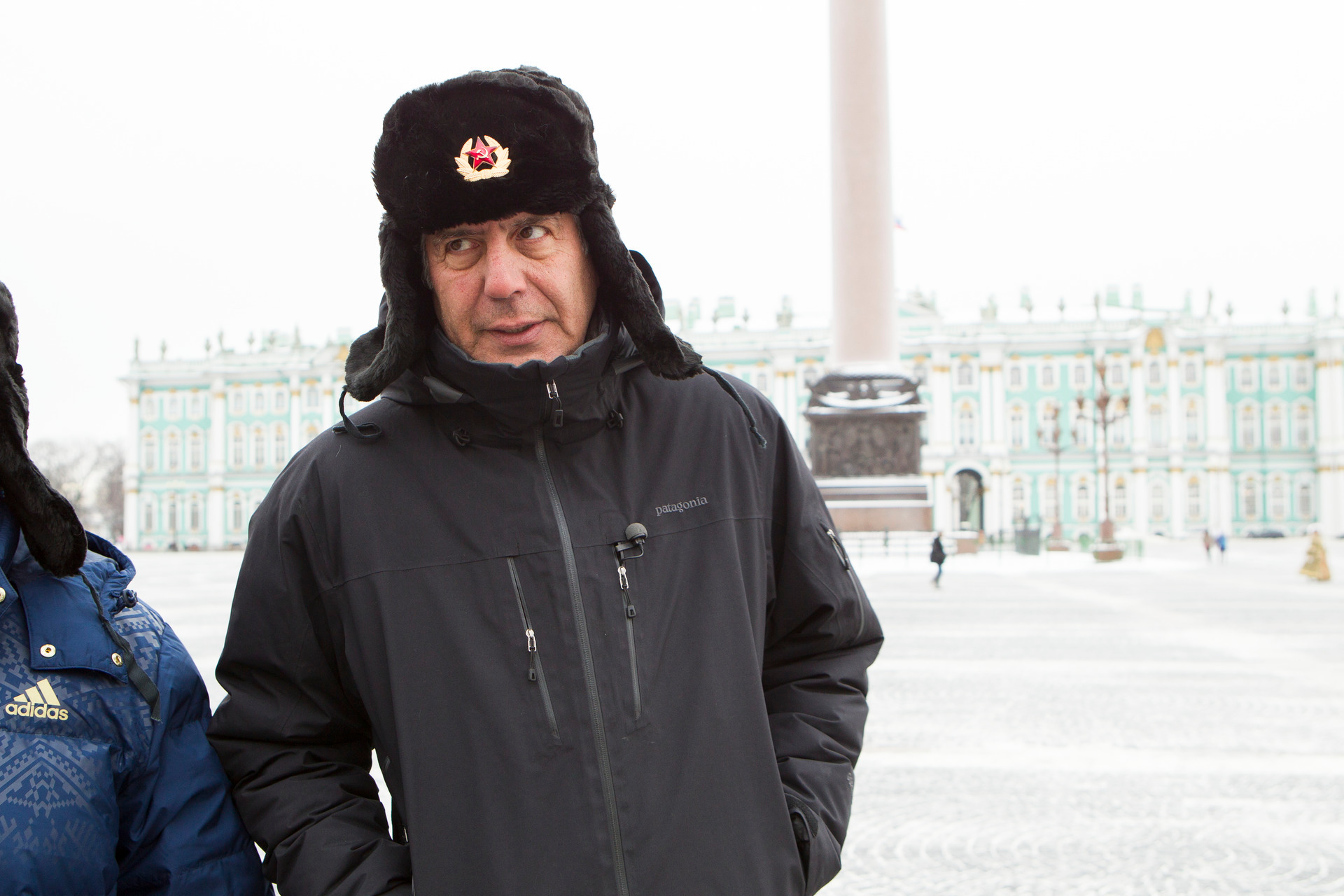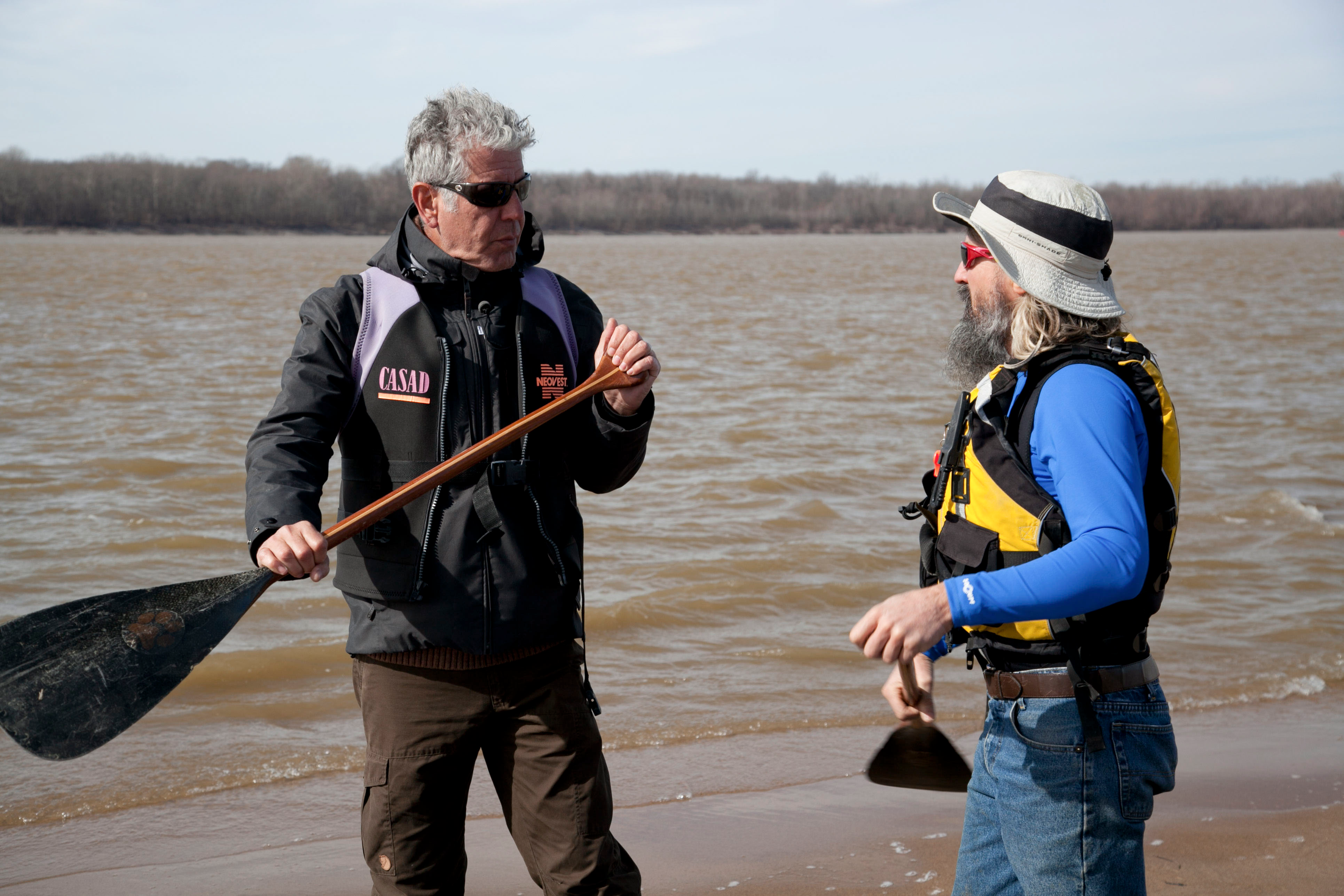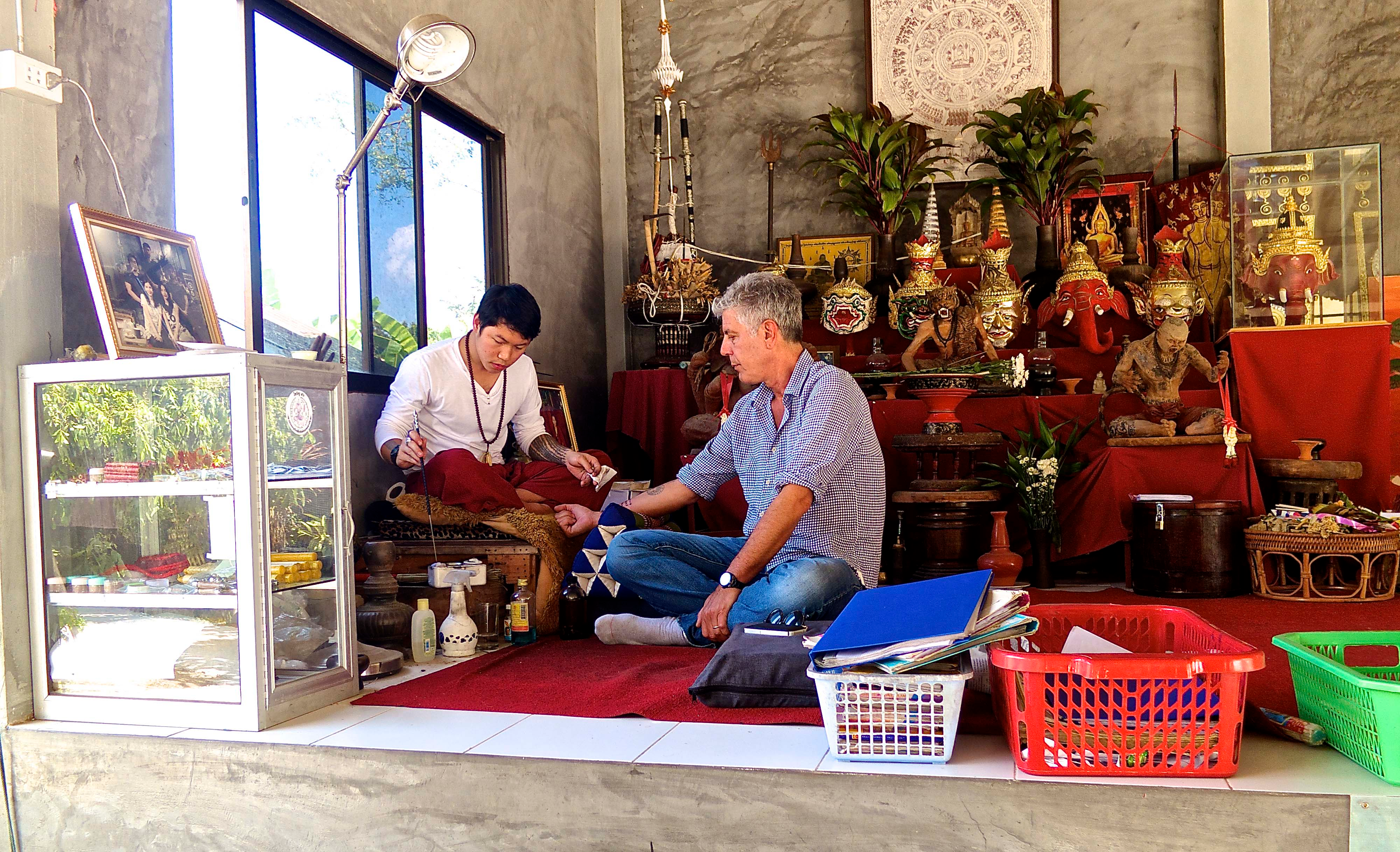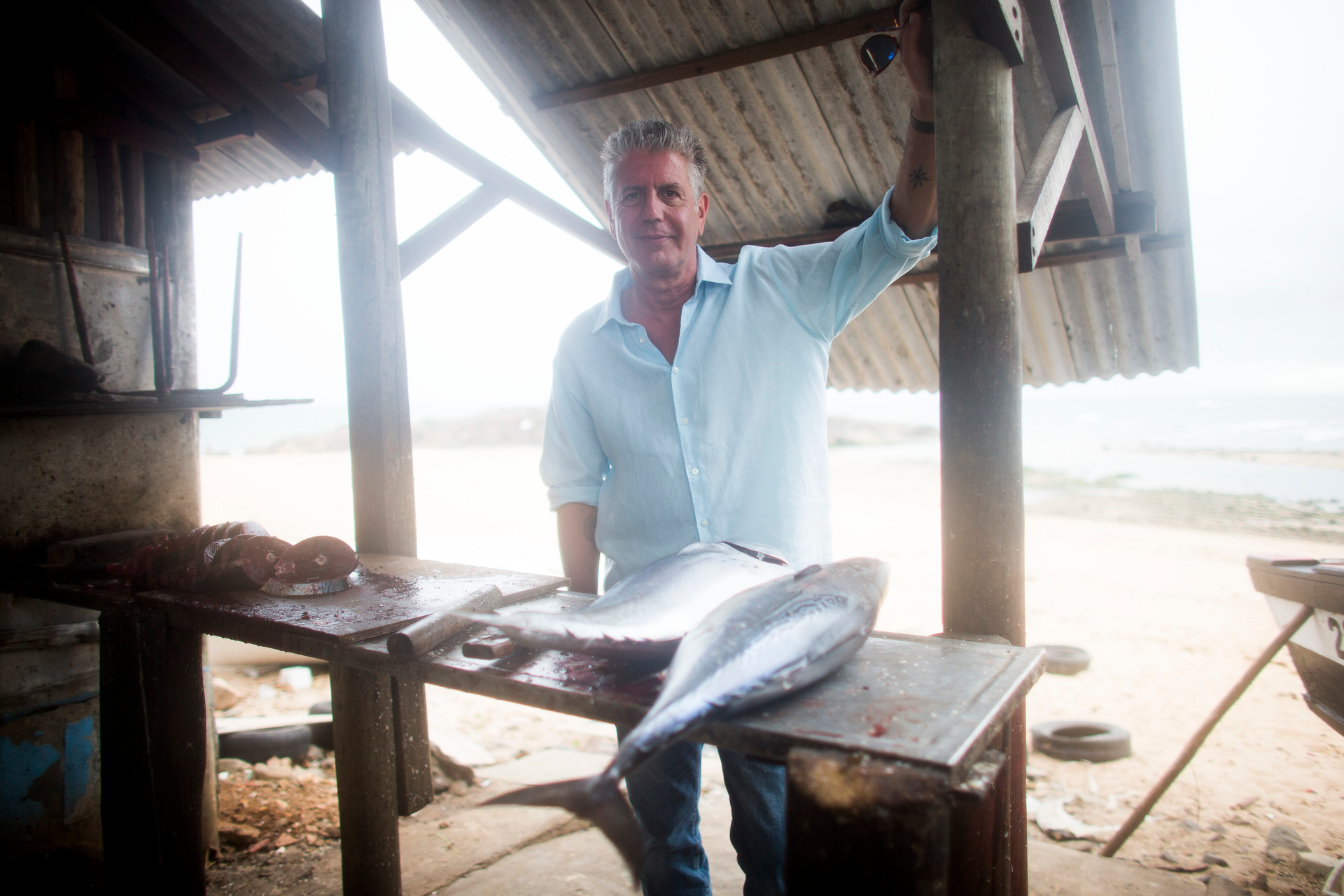Parts Unknown, Season 3: God Knows I've Been Both
Fair warning, had you not already figured this out: There is no season of Parts Unknown that's entirely devoid of heavy stuff. Bourdain's interest was in the world as it is, and while they might sometimes go light on the greater social or political context—this season's "Thailand" is one such example—it's never totally absent. That said, season three contains a much higher enjoyment index than your average season, if only because the things being enjoyed are really, really enjoyed. A feast in Lyon! Getting wasted in Thailand! Talking shit about Putin! Pure pleasures, all.
Episode 1: Punjab, India
The itinerary: This episode, another of Bourdain's favorites, earned Parts Unknown two of its 25 Emmy nominations to date—one for cinematography, and one for sound editing. The reasons should be obvious. While extraordinary cinematography is, to be frank, the norm on this show, few if any episodes of the show have a richer auditory tapestry. Sound editors Benny Mouthon and Hunter Gross use clamorous locales to their advantage, stacking individual elements within the din (such as the washing of plates at the Sikh Golden Temple) as building blocks to create something lively, inventive, and distinctive. It's a sound as arresting as the wild colors that fill the lens, but unlike the rich reds, blues, and yellows, it continues in the dark. The episode's most memorable scene sees Bourdain, out of sorts, board a tiny train and immediately attempt to sleep, but whenever the train enters a tunnel, a band of schoolchildren whoop with unrestrained delight. Despite himself, he smiles, and so do the other adults on board. Their cries bounce and reflect, filling the air and adding joy and warmth even to darkness.
Looks delicious: As Bourdain frequently reminds viewers—in most episodes, but this one in particular—he is no vegetarian. Yet, with apologies to the tandoori chicken, it's the spiced vegetables and endless fresh bread that prove most covetable.
Programming note: This episode contains a brief discussion of suicide.
Episode 2: Las Vegas
The itinerary: There's a tension in "Las Vegas" that emanates from the city itself—and, of course, from Bourdain's reaction to it. There's a lot of warmth, enthusiasm, pleasure; there's also a lot of artifice, disorientation, and discomfort. As he travels around the city, mostly by night, both halves collide over and over again. Sometimes, it's not even a collision as much as twin halves of the same thing, one light, one dark. An incredibly lavish meal (which Bourdain pretends is for "Wolf Blitzer," a wave he and dining companion Michael Ruhlman intend to ride for as long as they can) captivates both men, who sit at opposite ends of a too-long table, uncomfortable with the grandeur that surrounds them, but shamefacedly enjoying it all the same. The camera spins and dissolves, pleasantly dizzy, or maybe it's just that you've been up for hours and have no idea what time of day it is. When he visits Bootlegger Bistro for a chat with the Noir Nightingale, both wax a bit nostalgic for the Rat Pack days. Bourdain suggests that the minds that recreated Venice and Paris for the Strip attempt to recreate Vegas, too. The land of artifice could perhaps create an artificial tribute version of itself.
Looks delicious: Jose Andres and his chefs walk Bourdain and company through some of the extraordinary dishes on the menu at é, including the truffle egg. (That's a real yolk suspended in there.)
Episode 3: Lyon
The itinerary: Watching this episode feels alternately like taking a one-day master class in culinary history, watching a parade of the world's best dishes, and peeking in on an experience that perhaps wasn't intended to be personal and somewhat intimate, but which ends up being those things all the same. That's Lyon. All three modes are remarkably compelling. The last is oddly moving.
Looks delicious: As with Copenhagen, so with Lyon: Is this a trick question?
> Read more about "Lyon" in our list of Parts Unknown's most essential episodes.
Episode 4: Mexico City
The itinerary: In a later season, Bourdain will return to L.A., focusing not on a specific part of the city, but on one particularly large demographic. That episode will not be the first time Bourdain uses Parts Unknown to underline the hypocrisy and willful ignorance in Americans' attitudes toward Mexican people. No, this is the first time. There are segments in which Bourdain wanders in Mexico City through bustling markets, eating tortillas just plucked off a hot clay comal; there are also conversations about addiction, death, and grief. Sometimes the two happen at once. Bourdain is enraptured with the cuisine and livid about the indifference we show that country and its people. He sees a photograph of a dead elephant, escaped from the circus and struck by a vehicle while on the road, and he reacts as strongly as anyone might. It doesn't stop him from, moments later, pointing out that tens of thousands of Mexicans die yearly thanks to the "war on drugs," yet it's the single dead elephant that really makes Americans mad. Both are tragedies. One of those tragedies is on a much, much larger scale—and it's not the elephant.
Looks delicious: The michelada seen here puts its puny American cousins to shame. It's a drink that almost requires two hands.
Episode 5: Russia
The itinerary: Only two episodes of Parts Unknown feature one of the most memorable characters in the Bourdain-verse. In the later entry, he'll get wasted after losing his shot at fame and fortune, and wind up topless and pole-dancing. But here, Zamir's role is to help Bourdain understand Russia at this one specific moment. Zamir Gotta, a fixture of No Reservations and, to a lesser extent, A Cook's Tour, is essential to the success of this episode, which might otherwise be unbelievably bleak. It's not just because he's also credited as a local producer; Bourdain and Zamir's reliable chemistry, and the latter's unreserved, jubilant nature makes levity possible, even in Putin's Russia. Even with only two appearances in this series, Zamir more than earns his place in the Bourdain sidekick hall of fame.
Looks delicious: Aboard a night train to St. Petersburg, Zamir and Bourdain eat a meal of blini with caviar, cold pickled herring and potatoes, fish soup with olives and lemon, and vodka.
Episode 6: Mississippi Delta
The itinerary: At Doe's Eat Place, segregation meant sneaking the white people in through the back, Bourdain learns. He eats a famous salad there, made in the same wooden bowl for decades. At Lusco's, he shares a meal in one of the restaurant's curious private dining rooms; he also tells us the story of Booker Wright, who worked there. Bourdain, as always, asks questions and listens, prepared to have his assumptions upended, but refusing to ignore the history that continues to affect the state, if not the country. This is not an episode about how racist Mississippi is. But the episode, like (it would seem,) the state, does not shy away from addressing its ugly, nightmarish past—a lesson many other U.S. states could stand to learn.
Looks delicious: Bourdain's purely, primally delighted reaction to a pig's ear sandwich is pretty convincing.
Episode 7: Thailand
The itinerary: Bourdain sits down (with Pok Pok chef and Thai cooking evangelist Andy Ricker) for a feast at Him Tang that includes a soup made with uncooked blood, and brains that may or may not contain parasites. He does not hide his apprehension about these things, but there's never any doubt about whether or not he's going to try them. When they prove to be excellent, it is again not a surprise, because he is always prepared for things to be excellent.
Looks delicious: During the same meal, Bourdain is served grilled pig's tail, and it's one of those dishes that he can't keep himself from vocalizing about before he's even really had time to process what's happening.
Programming note: Bourdain uses the term "ladyboy" in reference to the dancers, some of whom are transgender women, at the club he and Ricker visit. The club also uses this term, and at least one of the dancers uses it to identify herself. In Thailand, the term is used quite frequently.
> Read more about "Thailand" in our list of Parts Unknown's most essential episodes.
Episode 8: Bahia, Brazil
The itinerary: You don't have to see the title of this episode to have a sense of the kind of environment you're in for, before you hear anything besides the clinking of ice or see anything beyond a closeup of hands. Never has a halved lime looked so sun-drenched. The hands are making a caipirinha, Brazil's national cocktail; we see a second one being made within the first four minutes. Like this season's "Mississippi," both the episode and the people of Bahia do not shy away from the racist, horrifying legacy of the place, but "Bahia, Brazil" goes one step further with a series of interstitial sequences that allow residents to speak directly to the camera about their lives and their home. Those sequences, too, are vibrantly colored and awash in sunlight, but the beauty increases the potency, and not the reverse. "He who looks at the face doesn't see the heart," explains a man who's worn armor of his own creation atop his head for decades. That might be true, but not when it's the Parts Unknown camera doing the looking.
Looks delicious: Apologies to the somewhat terrifying blowfish meal, but beyond the beautiful (and near-constant) caipirinhas, it's the positively enormous "big red fish" Bourdain shares with fishermen on a beach that proves most memorable.
